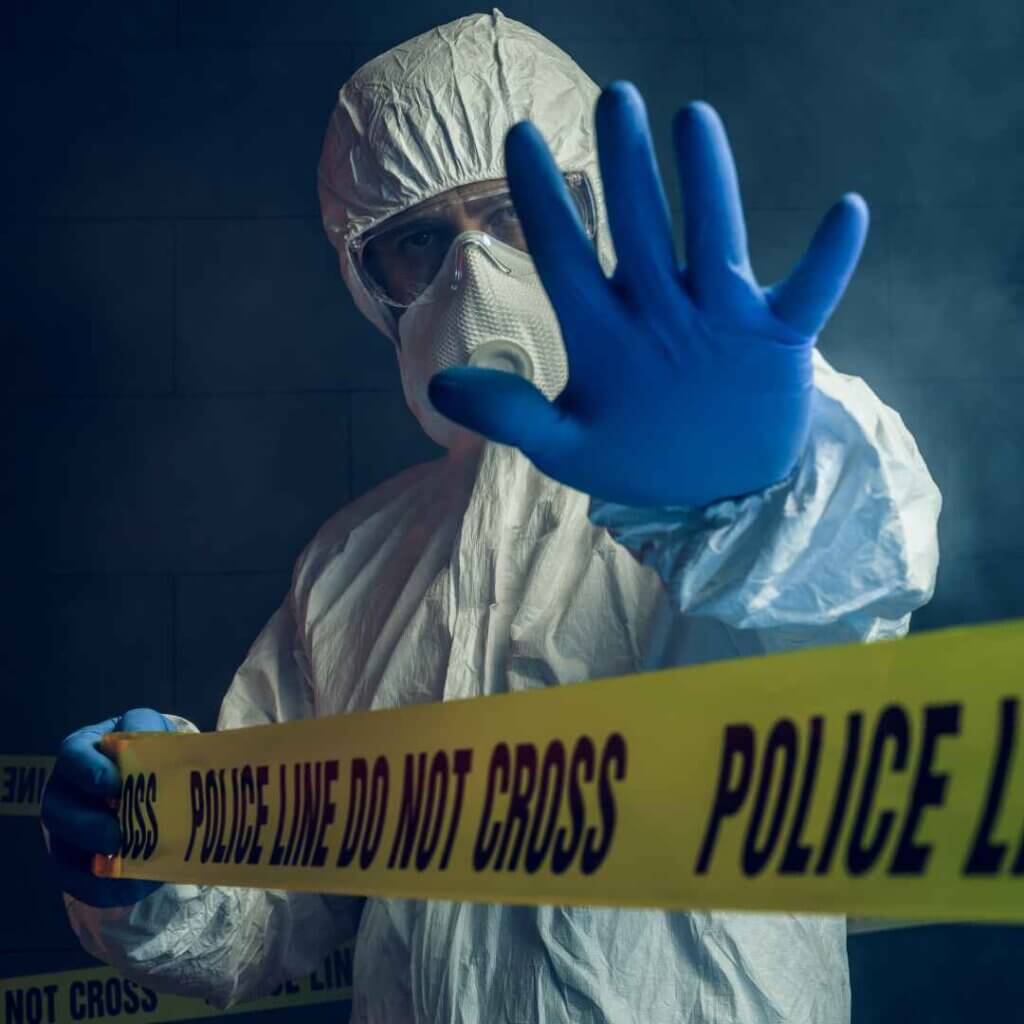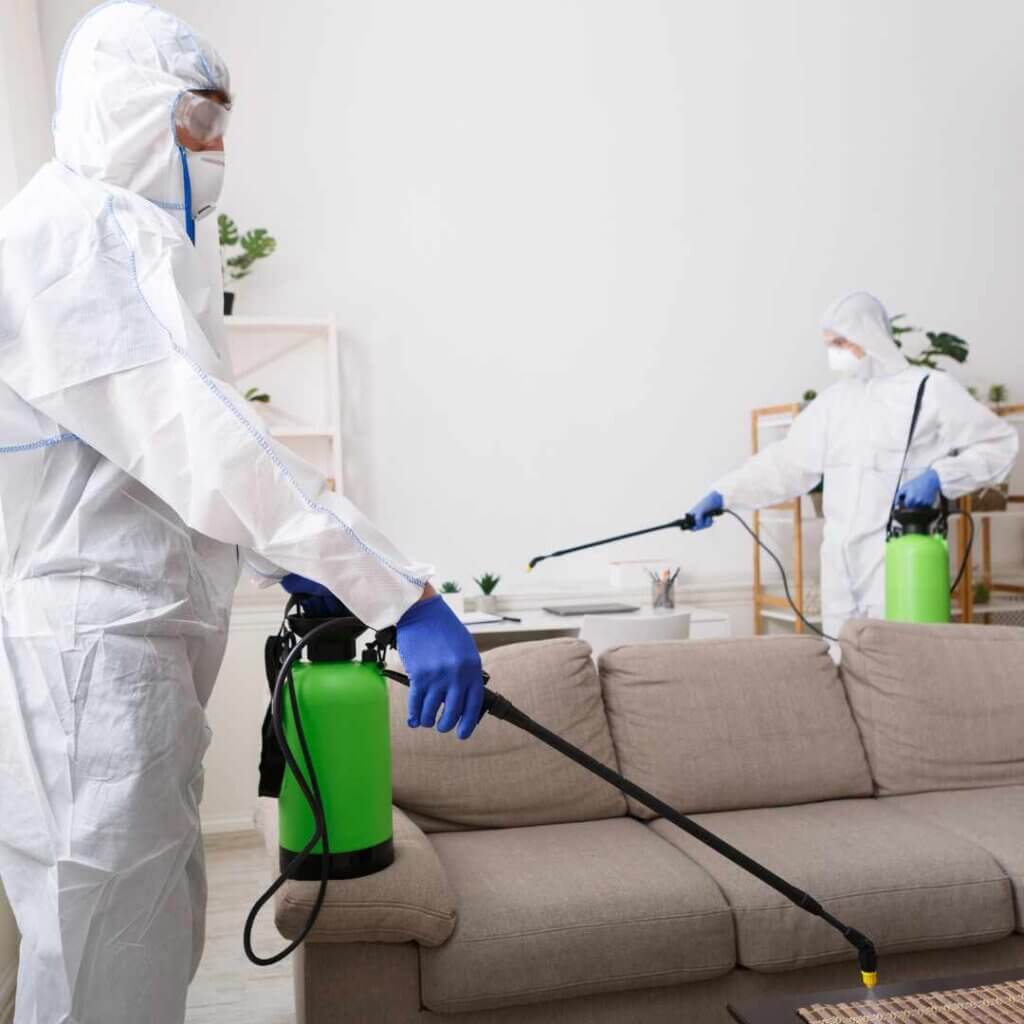5 Common Misconceptions About Forensic Cleaning
5 Common Misconceptions About Forensic Cleaning
Forensic Cleaning is a specialised type of cleaning that involves the removal of biohazardous materials, such as blood, bodily fluids, and other potentially infectious materials. Despite its importance in maintaining public health and safety, forensic cleanup is often misunderstood and surrounded by myths. In this article, we will debunk five common misconceptions about forensic cleaning and discuss the actual process of professional forensic cleaning services.
Forensic Cleaning is only for crime scenes.
This is a common misconception about forensic cleanup. While forensic cleanup is often associated with crime scenes, it is not limited to them. Forensic cleaning can also be necessary for situations such as unattended deaths, hoarding cleanup, and industrial accidents. Any situation that involves biohazardous materials requires proper forensic cleaning to ensure the safety of those involved and the general public.
Anyone can do Forensic Cleaning.
This is a dangerous misconception about forensic cleanup. Forensic cleanup requires specialised training, equipment, and certifications to ensure that the job is done safely and effectively. Attempting to clean up biohazardous materials without proper training and equipment can lead to serious health risks and legal consequences. It is important to hire a professional forensic cleaning company to handle these situations.
Forensic Cleaning is just basic cleaning.
This is a common misconception about forensic cleanup. Forensic cleaning involves the cleaning and removal of biohazardous materials such as blood, bodily fluids, and other potentially infectious materials. It requires specialised training, equipment, and certifications to ensure that the job is done safely and effectively. Basic cleaning does not involve the removal of biohazardous materials and is not sufficient for forensic cleanup situations.
Forensic Cleaning is not necessary.
This is a dangerous misconception. Forensic Cleaning is necessary in situations where biohazardous materials are present, such as crime scenes, accidents, and unattended deaths. These materials can pose serious health risks if not properly cleaned and disposed of. Professional forensic cleaners are trained to handle these situations safely and effectively, ensuring that the area is thoroughly cleaned and sanitised. Ignoring the need for forensic cleaning can lead to further contamination and potential health hazards.
Forensic Cleaning is too expensive.
While the cost of forensic cleanup may vary depending on the situation and the extent of the cleaning required, it is important to remember that it is a necessary service. Attempting to clean up biohazardous materials yourself can be dangerous and can lead to further contamination. Forensic cleaning professionals have the necessary equipment and training to safely and effectively clean and sanitise the area. Additionally, many insurance policies may cover the cost of forensic cleanup in certain situations, such as after a crime or accident. It is important to prioritise safety and proper cleaning over cost when it comes to forensic cleanup.
The Process of Forensic Cleaning
Forensic cleaning is necessary to ensure the safety of individuals and to prevent the spread of infectious diseases after certain situations. The process of forensic cleaning will differ depending on the location and severity of the incident. A general overview has hence been provided to understand the extent of cleaning and sanitisation needed.
Assessment
The first step during forensic cleaning is to assess the scene and determine the extent of the contamination or damage. This includes identifying blood, bodily fluids, tissue, or other biohazardous materials that may be present.
Safety measures
Before starting any forensic cleaning procedures, professional forensic cleaners take appropriate safety precautions. This includes wearing personal protective equipment (PPE) such as gloves, masks, goggles, and disposable suits to protect themselves from potential hazards.
Containment
The area is cordoned off and isolated to prevent cross-contamination to other parts of the property. This is done by setting up physical barriers, sealing doors and windows, and using plastic sheeting or specialised containment tents.
Removal of biohazardous materials
Biohazardous materials, including blood, bodily fluids, and tissues, are carefully and safely removed from the scene. They are placed in specially marked and leak-proof containers for proper disposal according to local regulations.
Cleaning and disinfection
The entire area is thoroughly cleaned using professional-grade cleaning agents and disinfectants. This includes scrubbing surfaces, removing stains, and deodorising the area to eliminate any lingering odours.
Restoration
Once the cleaning and disinfection process is complete, the forensic cleaning team restores the area to its pre-incident condition. This may involve replacing damaged materials, such as flooring or drywall, and ensuring that the space is safe and habitable.
Documentation
Throughout the process, detailed documentation is maintained. This includes photographs, written reports, and any necessary legal paperwork. It is essential for insurance purposes, law enforcement investigations, and providing proof that the area has been properly cleaned and restored.
It’s important to note that the process of professional forensic cleaning is highly specialised and requires trained professionals who are experienced in handling biohazardous materials and following strict safety protocols. The goal is to ensure the complete removal of potential pathogens, restore the affected area, and provide peace of mind to the property owner or occupants.
Why Choose AllAces?
AllAces Cleaning & Restoration is one of Australia’s most trusted restoration companies, fully equipped to deal with any level of forensic cleaning. Our technicians are trained and certified to industry standards with the use of advanced technologies, expert advice, and specialised equipment to ensure effective results. Do not risk your health or safety by taking on forensic cleaning yourself or returning to a traumatic scene.
Contact the experts today at 1800 00 10 10.
FAQs
What is forensic cleanup?
Forensic Cleaning is a specialised service that involves the thorough cleaning, sanitising, and decontamination of crime scenes, accident sites, or places where traumatic events have occurred. It aims to remove biohazards, bloodstains, bodily fluids, and other potential contaminants to restore the area to a safe and habitable condition.
What situations require forensic cleaning?
Forensic cleaners are needed in situations involving crime scenes, homicides, suicides, unattended deaths, accidents, and trauma scenes. They specialise in the thorough cleaning and decontamination of these areas, removing biohazards, blood, bodily fluids, and other potentially dangerous materials.
Is forensic cleaning dangerous?
Forensic cleaning can be potentially dangerous due to the exposure to biohazards and hazardous materials present at crime scenes or accident sites. Proper safety protocols, training, and protective equipment are essential to minimise risks and ensure the well-being of forensic cleaners.



